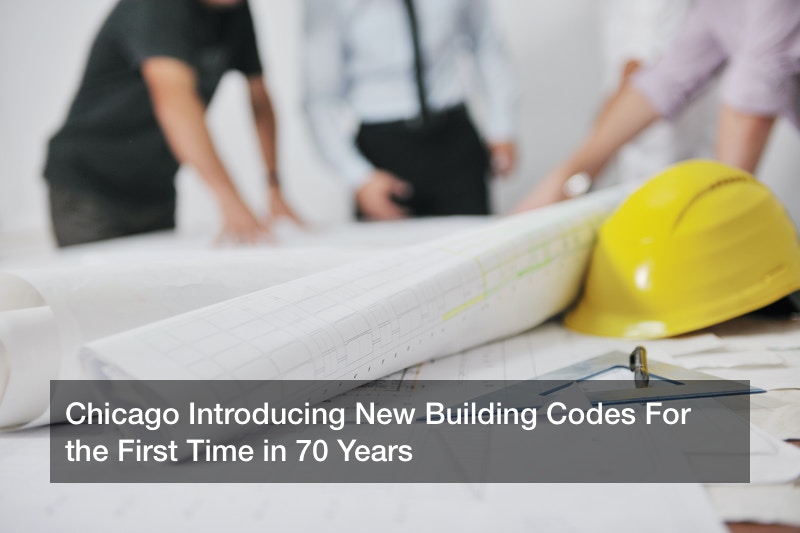
Updated 8/20/20
The construction equipment industry is projected to increase 12% over a 10-year period from 2016 to 2026. This sector is responsible for constructing everything from small residential properties to multimillion-dollar skyscrapers. Though these construction professionals are very knowledgable about the industry as a whole, they need to regularly stay up-to-date with various building codes.
Office buildings, for instances, require much different building codes than if they were being used as a residential property. Building codes are a set of rules that specify the standards for constructed objects such as buildings and nonbuilding structures. The main purpose of these codes are to protect public health, safety, and general welfare as they relate to the construction and occupancy of each structure.
But do you know how to fix building code violations? Odds are, you probably don’t. As such, relying on commercial builders is the best way to go about erecting a new office or industrial structure. They know how to look up building codes and negotiate with permit expediters to get the materials you need for the office you want.
But these experts are also vital for home residences. Residential building code violations are common since homeowners don’t realize that they’re breaking the law when they install that new deck. Relying on the pros could save you from wasting your time and effort.

According to Chicago Business, for the first time in 70 years, Chicago is getting its first new building codes.
Mayor Rahm Emanuel will introduce a major building code revision calling for new naming standards, material flexibility, sustainability measures, and much more that will likely revolutionize the way construction is handled throughout Chicago.
The new building codes will pave the way for utilizing cost-efficient construction materials and innovative technologies. Thinks like potting compound shrinkage (as much as 2.3% in the case of epoxy) must be considered.
“Being a world-class city and attracting the talent and businesses that see our economy growing requires that Chicago is at the top of national standards from the ground up,” said Mayor Emanuel in response to the new 2019 Chicago building code update.
The Mayor and the Department of Building’s proposal will require sprinkler systems in new apartment buildings with four or more units, hotels, event spaces holding more than 300 people, and office buildings over 70 feet tall. Additionally, the updated codes will provide the following benefits to Chicago:
- Adopt specific, up-to-date requirements for a wide range of building materials such as walls, roofs and other construction that will provide guidelines and standards that are lacking in Chicago’s existing code.
- Adopt the International Building Code’s terminology and classification systems for construction types and building occupancies, allowing Chicago builders and architects to easily adhere to the city’s code requirements.
- Encourage new development by allowing structures (with sprinkler systems) to have greater height, number of stores, and floor area per construction type. Fires are a huge risk and the new 2019 Chicago building codes are designed to deal with them.
- Promote energy efficiency and sustainability by making it easier to construct green buildings. Bamboo flooring, for instance, is a popular flooring option when it comes to sustainability due to its ability to grow to maturity in as little as three to five years.
- Improve public safety in the event of a natural disaster through seismic design requirements for critical establishments such as fire stations, hospitals, and taller facilities.
- Allow for cost-effective construction plans for single-family homes by implementing risk-based structural design requirements, meaning a two-story single-family home will not need to meet the same building requirements as 15-story buildings. With the average new mortgage balance being $244,000, any cost-saving measures are sure to be appreciated by homebuyers.
- Encourage preservation of Chicago’s existing buildings, including historic structures, by providing more flexibility and options for remodeling work. Additionally, this will bring down the cost of projects like the adaptive re-use of schools, retail buildings, and many of the city’s vacant buildings.
- Create greater opportunities for converting existing attics and basements into livable spaces without costly alterations. Minimum ceiling heights will be reduced, as well as introducing more options to meet light and ventilation requirements.
“From the beginning of this monumental effort we’ve led a consensus-based approach and worked together with a wide variety of stakeholders to better align Chicago’s building code with model codes and standards,” added Judy Frydland, Building Commissioner. “This accomplishment would not have been possible if not for the time and resources that were volunteered by so many within Chicago’s design, construction and development communities.”

Since you’re already going to invest in maintenance and repairs to get your building up to code in light of the 2019 Chicago building code update, now is also the perfect opportunity to upgrade the space in other ways. Studies have shown that the presence of natural sunlight can boost employee productivity while an open layout can promote collaboration. While some businesses might struggle to update their offices in the midst of the new 2019 Chicago building code announcement, looking at it as an opportunity will keep your employees safer and happier.
Related Keywords: 2019 chicago plumbing code, basement finishing guide, egress windows chicago, standard basement, unfinished basement codes, accessory dwelling unit chicago, adu report, alberta building code furnace clearance, basement building code ontario, basement ceiling drywall thickness code, basement electrical code, basement finishing material checklist, basement insulation code utah, basement specifications, building permit to finish basement, bungalow basement apartment, chicago building code occupancy load, chicago building code railing height, chicago code enforcement, chicago moving buildings, chicago residential stair code.

